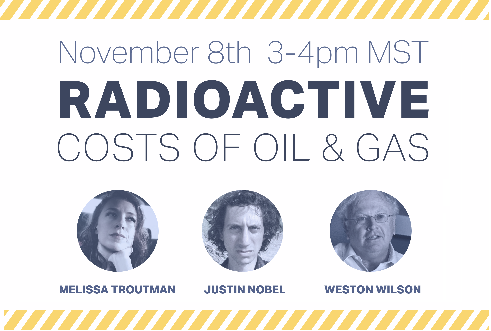3rd NY Town Wins in Court Over Fracking Ban
March 20, 2013Poll Confirms that NYers Don't Want Fracking
March 21, 2013By Bruce Finley, The Denver Post, March 20, 2013
This is identical to the medical gag order in Pennsylvania’s Act 13 which is currently being challenged.
Colorado doctors are challenging a confidentiality pledge they must sign to get information on chemicals used by the oil and gas industry — information they may need to treat patients and protect public health.
A state requirement that doctors sign Form 35, developed last year by the Colorado Department of Public Health and Environment and the Colorado Oil and Gas Conservation Commission, aims to protect industry trade secrets while also letting doctors fulfill duties.
But the Colorado Medical Society contends the form does not protect doctors from punishment for sharing information about chemicals with other medical professionals and public health authorities. No doctor has signed the form.
“I would have very mixed feelings about signing a form that tells me I could not be proactive about sharing this information with the health department,” Dr. Michael Pramenko, a family physician in Grand Junction and former president of the 7,000-member medical society. “To me, if there’s a chemical in the environment and there are potentially other people being exposed, it does not make sense, from a health standpoint, to not be sharing that information.”
The issue is complex because it pits oil and gas companies protecting trade secrets against residents’ health and doctors’ diagnoses of ailments.
Medical society members proposed changes to Form 35 that they are urging the CDPHE and COGCC to adopt — at a time when the agencies have acknowledged a need for better scientific data on how the oil and gas industry may affect people.
“If (doctors) feel like a patient’s presenting symptoms are attributable to some possible chemical, they would want to be able to explore that in assessing the patient’s condition,” medical society attorney Susan Koontz said. “(Doctors) just want assurances that the doctors can share the trade secret information in the medical record with other treating team members.
“Doctors also want to be able to disclose the trade secret information to public regulatory agencies like the Department of Public Health and Environment.”
“We have listened”
But CDPHE director Dr. Chris Urbina stands by the current Form 35.
“I believe it provides appropriate guidance and permission to health care providers needed to treat their patients,” Urbina said in a statement e-mailed by an agency spokesman. “We have listened to the concerns of the Colorado Medical Society and will continue to work with them.”
Form 35 obligates those who sign it “to hold confidential all Trade Secret Information obtained” from companies and “not to make use of it for purposes other than medical diagnosis, treatment or other health needs asserted” in a written “statement of need.”
An exception is granted for medical emergencies so that doctors initially can receive information about chemicals orally. Form 35 doesn’t specify whether doctors can share information with other medical professionals or with public health officials.
The problem is that Colorado likely will need to know more about oil and gas industry effects on health — requiring studies of the sort done on tobacco products, Pramenko said. “If you have multiple cases in isolation, how do you paint a picture? The only way you can study it is through epidemiology – science,” requiring open discourse.
COGCC spokesman Todd Hartman said representatives of the industry and the environmental community helped develop the confidentiality pledge. It was designed, he said, “to reach the balance needed on a complex matter.”
But Dr. Mitchell Gershten, based in Cedaredge, calls it “a gag order.” Gershten grew concerned about secrecy after reflecting on the case of a patient four years ago, a rig operator, who had liver problems after being exposed to a chemical.
“There are spills happening all over the state, all the time,” Gershten said. “This is just about transparency so that nobody is harmed and the environment is not harmed. Why does it have to be so secretive?”
Mostly water
Gov. John Hickenlooper has supported a public disclosure rule that says companies must list chemicals they use in hydraulic fracturing, or fracking, on a website. However, companies are not required to list chemicals deemed to be trade secrets. While the millions of gallons companies inject are mostly water, a small percentage consists of a chemical cocktail designed to coax oil and gas from underground rock.
Western Colorado residents say they favor giving doctors better access to information about chemicals.
“To gag the doctors, to not be able to relate what those chemicals are, that’s awful. I would think (state health regulators) would want to protect people’s health,” said Grand Valley Citizens Alliance president Leslie Robinson. “And one way to protect health is information.
“We’ve had people sick from chemical exposures. We’ve had members exposed because they lived close to drilling. And we’ve had some members die,” she said. “There’s no data that has been given out by the local hospital and doctors. Like is there a higher incidence of cancer? All we have are anecdotes of people saying there is a higher incidence of mysterious illnesses. People go to their doctor and there’s a shrug. Who knows?”



